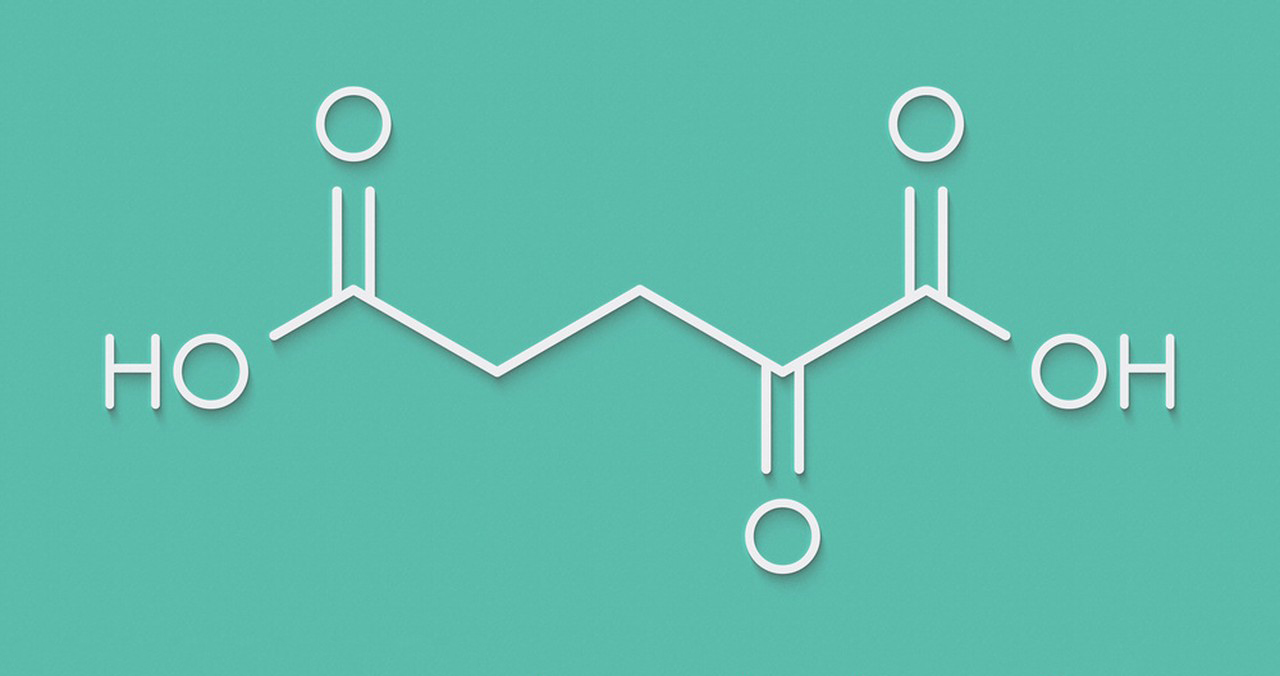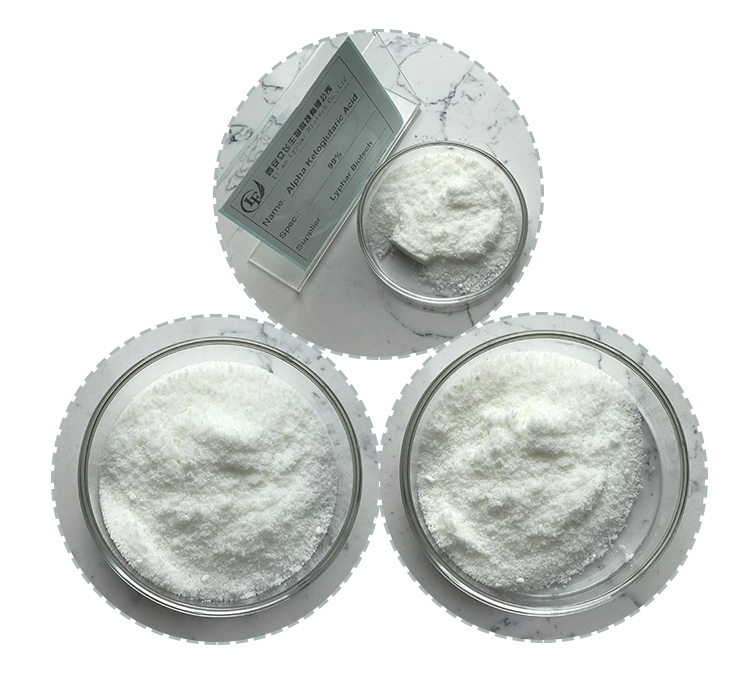Alpha-ketoglutaric acid, also known as 2-oxoglutaric acid or α-ketoglutarate (α-KG), is an important molecule in cellular metabolism. Here’s an overview of its chemical structure, physical properties, and significance:
Chemical Structure of Alpha-Ketoglutaric Acid:
Alpha-ketoglutaric acid has the molecular formula C₅H₆O₅. Its structure consists of a five-carbon skeleton with a ketone group (C=O) and two carboxylic acid groups (-COOH) attached to adjacent carbon atoms. The structure can be depicted as:
O O
| |
O–C–CH2–CH–COOH
| |
CH2 H

Physical Properties of Alpha-Ketoglutaric Acid:
- State: Alpha-ketoglutaric acid is typically found as a white to off-white crystalline powder.
- Solubility: It is highly soluble in water.
- Melting Point: The melting point of α-ketoglutaric acid is around 130-132°C.
Chemical Properties and Significance:
- Metabolic Role: Alpha-ketoglutaric acid plays a crucial role in the citric acid cycle (also known as the Krebs cycle) as an intermediate. It is involved in the aerobic metabolism of carbohydrates and amino acids.
- Ammonia Detoxification: It is involved in the transamination reactions that transfer amino groups, helping in the detoxification of ammonia in the body.
- Supplement Use: Alpha-ketoglutarate is sometimes used as a dietary supplement due to its potential benefits for athletic performance, wound healing, and various health conditions.

Biological Significance:
- Energy Production: It participates in the citric acid cycle, where it undergoes decarboxylation to form succinyl-CoA, generating ATP and reducing equivalents (NADH and FADH₂) used in cellular energy production.
- Regulation of Gene Expression: Alpha-ketoglutarate is involved in epigenetic regulation through interactions with enzymes like histone demethylases and DNA demethylases, affecting gene expression and cell differentiation.
In summary, alpha-ketoglutaric acid is a pivotal molecule in cellular metabolism, contributing to energy production and playing significant roles in health and disease. Its structure and properties make it essential for various biochemical pathways, making it a subject of considerable scientific interest and therapeutic potential.
